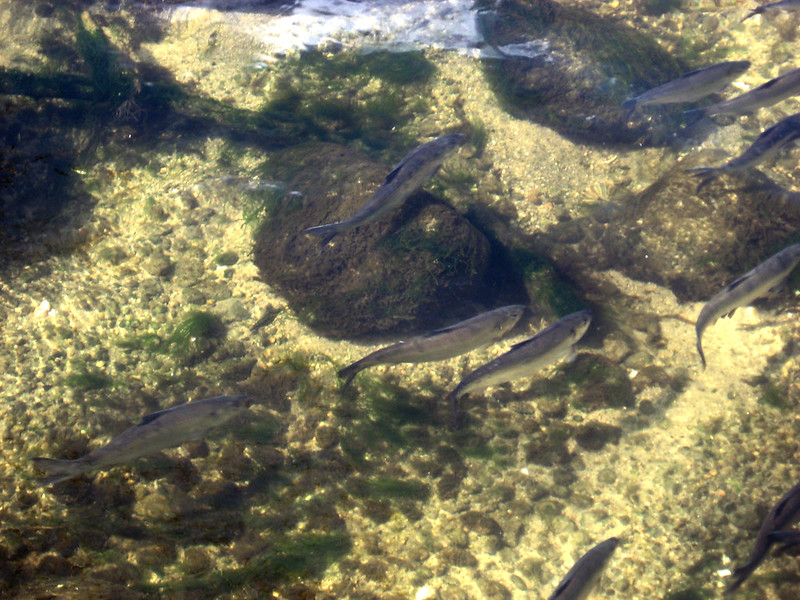Last week, CLF filed a lawsuit against the EPA and Curtis Spalding, EPA Regional Administrator, Region 1. (You can find a copy of the suit here, and copy of the press release here.) I want to take a moment to explain why this lawsuit is important.
The alewife is a critical “keystone” species in marine and fresh waters – it is an important source of food for many fish and marine mammals and for numerous birds. The alewife is a native fish to many Maine rivers and is anadromous, meaning it starts its life in freshwater ponds and lakes, migrates down river to the ocean where it spends most of its life and then returns to its native waters to spawn.
As on many Maine rivers, alewives on the St. Croix River were all but extirpated due to pollution and the damming of the river. However, in the early 1980’s, the population of alewives in the St. Croix River was restored, reaching more than 2.5 million a year due to cleaner water and effective fish passage at the dams on the river. But in 1995 the Maine legislature passed a bill specifically designed to block alewife passage at the Woodland Dam and Grand Falls Dam on the St. Croix River, based on what turned out to be unsubstantiated claims that alewives were causing a decline in the non-native smallmouth bass population in the St. Croix watershed. In 2008, even after those claims were found to be without merit, the Maine legislature amended the law to allow alewives passage only at Woodland Dam, restoring only 2% of the natural habitat previously available to alewives – effectively preventing them from accessing 98% of their natural habitat in the St Croix above the Grand Falls Dam.
As a result of this change, as I said in my letter to EPA Administrator Lisa Jackson, “the Maine Legislature intentionally and effectively changed the water quality standards for that section of the St. Croix [from Class A] to Class B.” As we allege in our suit, this action obligated the EPA to review and reject that change pursuant to its non-discretionary duties under the Clean Water Act (or CWA).
Under the Clean Water Act, any change to an existing water quality standard must be consistent with the state’s anti-degradation policy and must be submitted to the EPA for review. The de facto change to the water quality standards of the St. Croix was not submitted to the EPA for review, nor did EPA review the change for approval or disapproval, as required.
As a result, Maine was allowed to circumvent its responsibilities, and the EPA failed to fulfill its legal obligations.
As I said in the press release, “The law is fundamentally at odds with the legal requirement that the St. Croix River provide natural habitat unaffected by human activity for these fish and EPA has a continuing obligation to review and reject this change in that requirement.”
I was joined in my statement by Bill Townsend, a longstanding member of CLF and one of the deans of Maine’s environmental community, who noted that when he served as President of Maine Rivers, it obtained the funding and data to support studies that alewives are not detrimental to small-mouth bass populations, the original basis for the law. “The failure of the Maine Legislature to change the law in the face of that evidence and of the EPA to take every possible step to address that wrong is unacceptable.”
For more, find copies of my letter to EPA Administrator Lisa Jackson here, CLF’s filing here, and our press release here.
Stay tuned for more!
